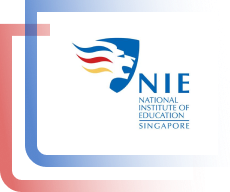Be Prepared for Work Both In and Outside of Education
NIE is historically rooted in its primary mission of preparing teachers. Today, those who complete our graduate programmes are more broadly prepared for work both in and outside of education. Whatever their fields, NIE graduates of master’s programmes are equipped with the skills, knowledge and dispositions to frame, explore and solve problems.
Expected Growth and Development As a NIE Graduate
Graduates of these NIE programmes are committed to serving the communities of which they are a part in reflective, ethical and caring ways. They are able to come together with diverse others, listening in order to expand their own understanding. They value a multiplicity of perspectives and the creation of consensus among competing points of view. They recognise that there are multiple pathways to knowledge. They are persistent, valuing the process of inquiry and the pursuit of knowledge with an end in view of making the world a better place. They have developed a self confidence to act and communicate effectively, reflecting the knowledge, skills, values and dispositions that have been enhanced through their graduate studies at NIE.

Figure 1: An illustration of Graduate Attributes and Competencies (GAC)
Those who Complete NIE Graduate Programmes Have:
Expanded knowledge of their disciplines and beyond
This means that they have:
- demonstrated mastery, creation and application of knowledge
- grown in their understanding of the structure and nature of knowledge
- developed an understanding and appreciation of the evolving nature of knowledge
- shown appreciation for multiple ways of knowing
Developed the habit of mind of critical inquiry
This means that they have:
- are open-minded, able to question assumptions
- are critically reflective; that is, able to recognise potential for on-going individual and collaborative growth
- do not take things for granted
- are able to understand problems in time and space
- are able to grasp literal and symbolic meanings (metaphorical)
- are able to see issues in social contexts
- are able to derive implications and/or applications for a wider purpose or community
Enhanced their communication competencies
This means that they are able to:
- develop points of view and defend arguments with evidence
- listen open-mindedly to arguments of others
- engage in critique, collaboration and consensus building
- communicate through multi-modalities in diverse contexts
Enhanced their leadership competencies
This means that they are able to:
- motivate knowledge manipulation and generation through provision of the necessary supportive conditions
- enable change and innovation by encouraging new ways of knowing and doing
- facilitate and support the work of others with empathy and care
Demonstrated values and dispositions consistent with the broad mission of NIE graduate programmes
This means that they have demonstrated willingness to:
- maintain an attitude of humility regarding their own knowledge
- be sensitive to multiple contexts (maintain perspective consciousness)
- hold critical perspectives (maintain tentativeness and open-mindedness)
- value diversity and differences
- develop a pro-active sense of social responsibility and justice
- act with ethical sensitivity

